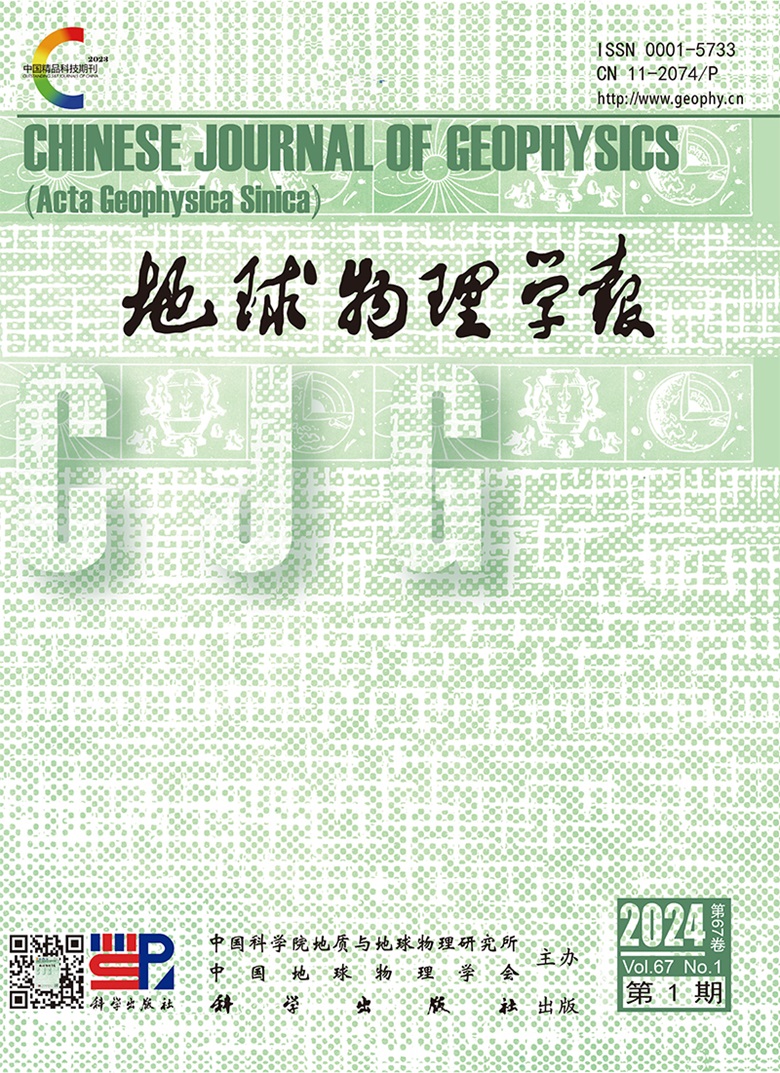TIME‐DOMAIN ELECTROMAGNETIC DIFFUSION AND IMAGING DEPTH FOR AIRBORNE ELECTROMAGNETIC DATA
IF 1.4
4区 地球科学
Q3 GEOCHEMISTRY & GEOPHYSICS
引用次数: 3
Abstract
To study the electromagnetic (EM) diffusion of a time-domain airborne electromagnetic (AEM) system, we first calculate the frequency-domain EM field inside the earth based on the continuity boundary condition and then transform it into time-domain via a Fourier transform. We calculate the EM fields induced by a step pulse for a homogeneous half-space and a two-layer earth model and display the EM diffusion in the earth as 2D vectors or 3D animated time-varying contours (like the “smoke ring”). These time-domain current rings display the true EM diffusion, because they demonstrate the spatial variation and decay of underground EM fields with time. The study of the EM current rings shows that the EM diffusion is strongly influenced by the resistivity structure inside the earth. In a conductive earth, the current ring diffuses slowly but decays fast, while in a resistive earth it diffuses fast but decays slowly. The induced current for a vertical magnetic dipole forms a single current ring that propagates with time outward and downward, while for a horizontal magnetic dipole, the induced current forms two stacked current rings in the underground, diffusing with time into the deep earth. Based on the EM current ring, we find that the imaging depth for AEM data is about 0.55 times the EM diffusion depth. By showing the underground induced current as vectors and 3D time-varying animated contours, the EM diffusion and smoke ring are clearly observed. An animated EM smoke ring offers more information than a static contour of current density. The relation between imaging depth and diffusion depth is further confirmed by the smoke rings. Study on EM smoke ring can not only offer an insight into EM diffusion in the earth, but can also assist in airborne EM data interpretation.机载电磁数据的时域电磁扩散和成像深度
为了研究时域机载电磁(AEM)系统的电磁扩散,首先基于连续边界条件计算地球内部的频域电磁场,然后通过傅里叶变换将其转换为时域。我们计算了均匀半空间和双层地球模型中阶跃脉冲诱发的电磁场,并以二维矢量或三维动画时变轮廓(如“烟圈”)的形式显示了地球中的电磁扩散。这些时域电流环反映了地下电磁场随时间的空间变化和衰减,显示了真实的电磁扩散。电磁电流环的研究表明,电磁扩散受地球内部电阻率结构的强烈影响。在导电接地中,电流环扩散缓慢,但衰减快,而在电阻接地中,电流环扩散快,但衰减慢。垂直磁偶极子的感应电流形成一个单一的电流环,随着时间向外和向下传播,而水平磁偶极子的感应电流在地下形成两个堆叠的电流环,随着时间扩散到地球深处。基于EM电流环,我们发现AEM数据的成像深度约为EM扩散深度的0.55倍。通过显示地下感应电流矢量和三维时变动画轮廓,可以清楚地观察到电磁扩散和烟圈。动态的电磁烟圈比静态的电流密度轮廓提供了更多的信息。烟圈进一步证实了成像深度与扩散深度之间的关系。对电磁烟圈的研究不仅可以深入了解电磁在地球上的扩散情况,还可以辅助航空电磁数据的解释。
本文章由计算机程序翻译,如有差异,请以英文原文为准。
求助全文
约1分钟内获得全文
求助全文

 求助内容:
求助内容: 应助结果提醒方式:
应助结果提醒方式:


